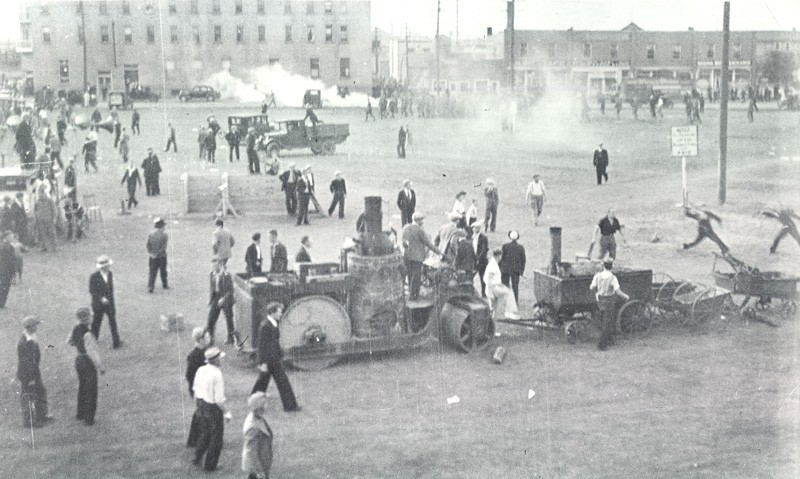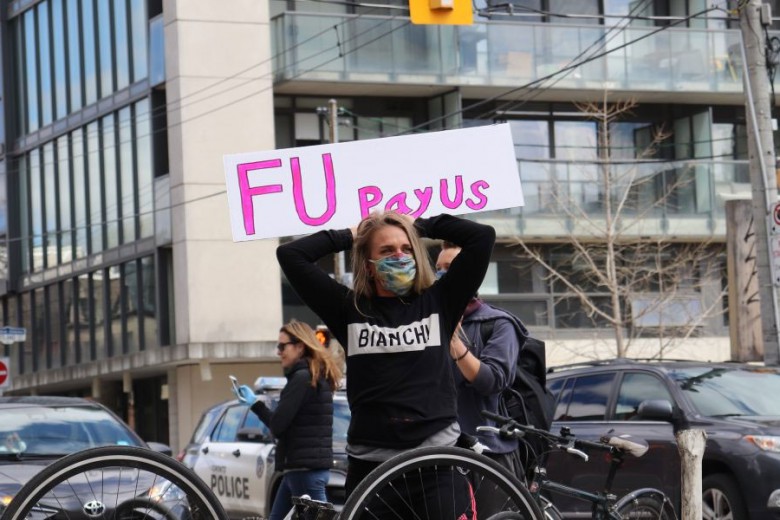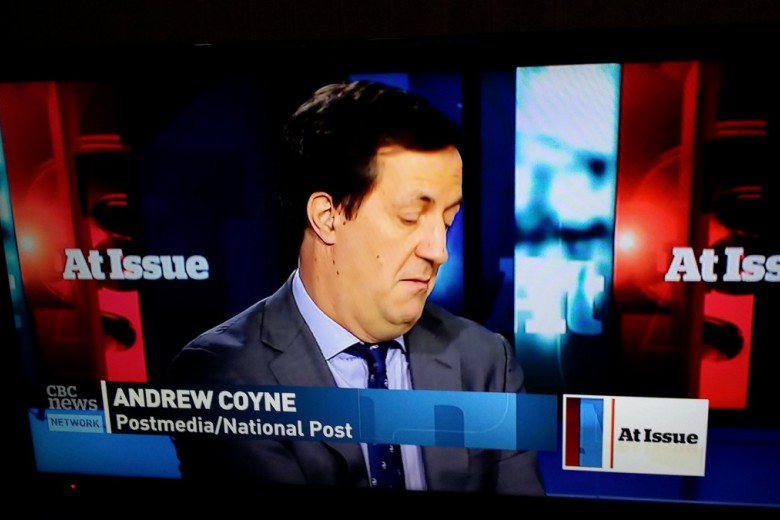
This summer marked the 75th anniversary of the Regina Riot, a landmark in the history of Briarpatch’s hometown and an event with political reverberations well beyond the city itself. On June 3, 1935, at the height of the greatest crisis of capitalism in the country’s history, 1,200 striking workers departed relief camps in British Columbia aboard eastbound boxcars to deliver demands for employment and fair wages to the federal government of R.B. Bennett. Eleven days into the journey, the On-to-Ottawa Trek was met with RCMP blockades in Regina. After two weeks of failed negotiations, city police and mounted RCMP officers charged the crowd of Trekkers with baseball bats and billy clubs, sparking one of the most violent episodes of the Great Depression.
On the anniversary of the Regina Riot, capitalism is again in upheaval. As financial elites once again scramble to reconfigure the economy to safeguard the interests of the powerful, our position is in many respects a weaker one than that of the Trekkers, and the prospects of making significant gains comparable to those of social movements in the 1930s appear distinctly remote. In fact, the financial crisis has in many ways betrayed the infirmity of the Left in that our failure to seriously advance an alternative means of organizing society, even when capitalism is at its most vulnerable, has been laid bare on a global scale. While the end of the planet as we have known it is increasingly accepted in mainstream discourses of climate change, ecological calamity, widespread natural disasters and peak oil, the end of capitalism remains for the most part unthinkable.
In fairness, the working class of today faces a much different set of obstacles to collective action than that of the Regina Riot era. As Sarah Mann observes in this issue, whereas industrial capitalism brought workers together, be it in a factory or neighbourhood, today’s working class is isolated and divided as never before. Neoliberalism has reshaped the nature of work, and beyond that, our most basic modes of existence and the narratives that guide us.
The standard of full-time, life-long employment has been replaced by work that is increasingly temporary, part-time and precarious. The working class has itself been reshaped, too, and rendered progressively more migratory, more racialized, more female.
As the nature of the neoliberal working class is different than that which preceded it, so too must be our resistance. Traditional models of labour activism have never been less potent, and are being forced to adapt or be condemned to irrelevance. The labour movement as a whole continues to lose ground, and its demands are thoroughly inadequate to disrupt the exceeding success of neoliberalism in channelling wealth to those with the greatest privilege and power, at the expense of those with the least.
Still, there are sites of collective action that offer ample inspiration. This June, the world’s attention was directed to the streets of Toronto, where thousands of demonstrators convened to oppose the G20 summit. Backed by a $1 billion security apparatus and roughly 19,500 police, military and security personnel, those responsible for the financial crisis met in an armed camp to ensure the continued protection of their shared interests. They were met with broad-based resistance spanning diverse movements for social, environmental and economic justice, indigenous sovereignty, migrant rights and many others, who rightfully found common cause in opposing the G20 agenda and defied a concerted campaign of intimidation and repression.
It serves us well to bear in mind that as this issue of Briarpatch goes to press, people continue to be arrested on G20-related charges, and many are facing serious jail time. Others have been threatened with deportation, and still more have had their lives severely disrupted as a consequence of outlandish bail conditions, house arrest and non-association clauses. As Robyn Maynard notes in this issue, the bulk of those facing the severest of penalties are dedicated organizers with long histories of tireless work in, and beyond, their communities. All deserve our continued support and solidarity, not only in the immediate sense, but by continuing the work of bridging gaps and linking struggles for a movement truly capable of responding to periods of crisis with mass collective action.





_780_520_90_s_c1.jpg)
